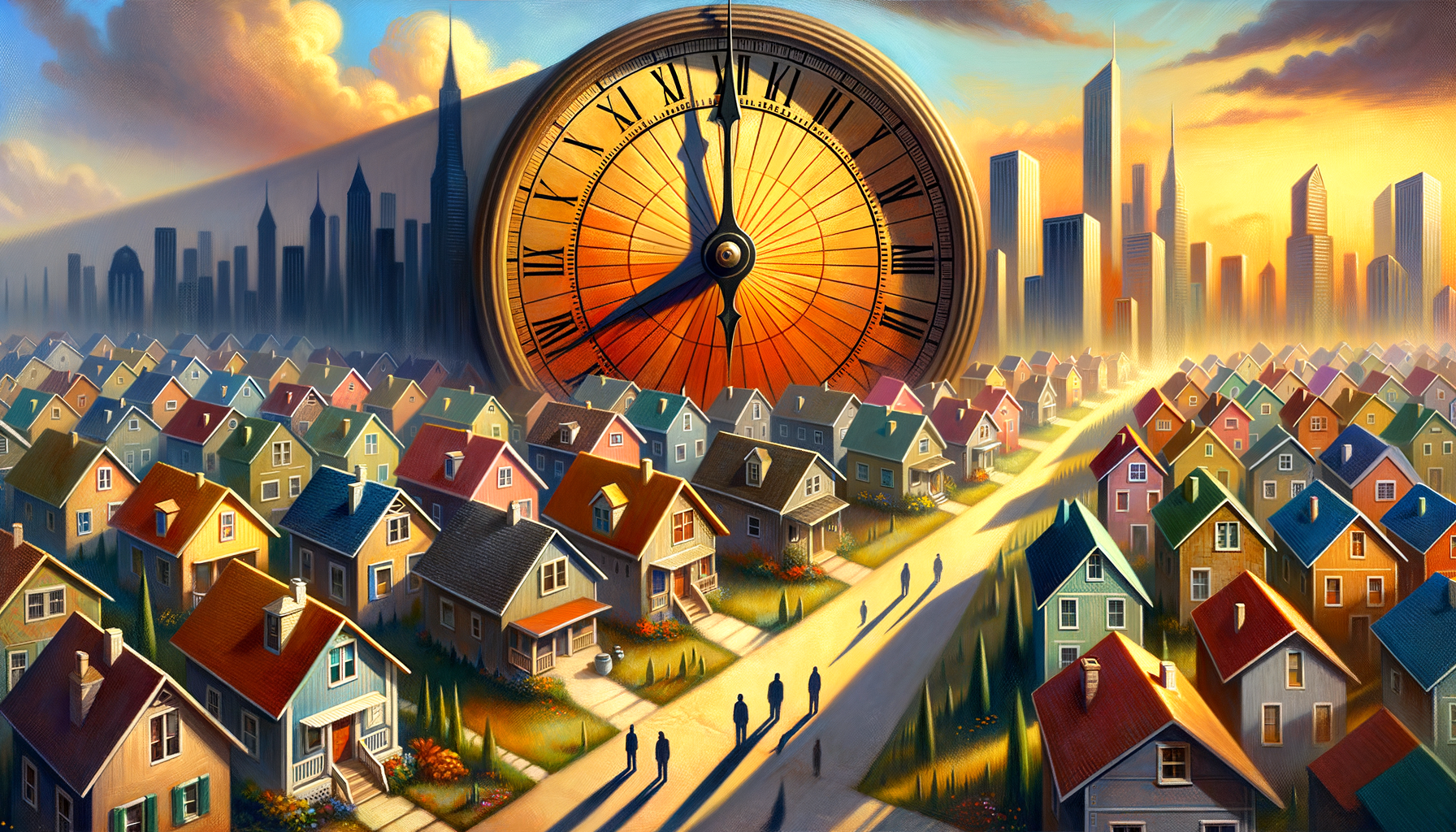“Understanding the Impact of Rising Interest Rates on Weekly Mortgage Demand: Trends and Observations”
The ever-changing housing market is currently facing a new twist: a decrease in mortgage requests from potential homebuyers. This developing trend seems to be rooted in the recent escalation of interest rates. Having seen a steady rather linear trend in the demand for weekly mortgages, the flattening demand can be attributed to numerous factors, but the major one is the current surge in interest rates.
Interest rates can feel like a double-edged sword. On one hand, they encourage saving by providing returns on deposited money. On the other hand, they can deter borrowing by increasing the overall cost of a loan – in this case, a home mortgage. A rise in the interest rate inevitably translates into heavier financial burdens and longer repayment periods for home buyers. This trend isn’t particularly inviting for potential homeowners, leading to a lull in the weekly mortgage demand.
Exploring the Mortgage Landscape
A mortgage forms the bedrock for most of the home purchases made today. In simple terms, it’s a loan granted to a homebuyer by a bank or other financial institution to aid in the purchase of a property. It is then repaid over a specified duration in increments plus an interest rate charge. The property, in turn, serves as collateral until the loan is fully paid off. Like any other loan, the key determinant of its attractiveness is the interest rate charged.
As interest rates tick upward, the monthly repayments become heftier and unattractive to potential borrowers. This culminates in a dampening effect on the real estate market, which survives on a constant churn of property sales and purchases. With higher interest rates, potential buyers find it more difficult to finance their dream homes resulting in fewer mortgage applications.
Interpreting the Decline in Mortgage Demand
Currently, this appears to be the scenario. The average interest rate for the widely popular 30-year fixed-rate mortgage has seen an incremental but noticeable hike. The rise has led to significant implications for potential homebuyers. Nonetheless, it’s not all doom and gloom. Market analysts suggest that this apparent stagnation in mortgage demand could be a temporary blip.
Many potential buyers might be choosing to take a step back and evaluate the market in response to the interest rate increase. It might be a case of borrowers applying brakes to their home-buying ambitions and waiting for the fortunes to swing in their favor. While some speculate that we might be on the threshold of a real estate damper, others maintain optimism that this is more of a market adjustment rather than a full-blown crisis.
Moreover, the current state of mortgage demand is intimately tied up with the broader economic situation. With the world still grappling with the economic aftershocks of the COVID-19 pandemic, financial markets have seen shifts across many sectors. Unprecedented fiscal policies and government interventions seeking to stabilize and revive economies have also had a profound impact on interest rates. It’s against this backdrop that the recent development in the housing market materialized.
Navigating the Mortgage Market
The current shift in mortgage demand shouldn’t necessarily spur panic or hasty decisions. For borrowers who already have a mortgage, especially those on a fixed interest rate, you remain largely unaffected. It’s the potential homebuyers and those planning to refinance that need to mull over their options.
For those looking to take out a mortgage or refinance an existing one, a rise in interest rates surely means you’ll be footing a larger bill. However, this needs to be weighed against the many variables of your financial landscape. Experts advise potential buyers to evaluate their specific circumstances, do the math, and be apprised of the options available.
When faced with high-interest rates — potential buyers need to do a thorough cost-benefit analysis. Do the long-term repayments outweigh the immediate gratification of owning home? In essence, understanding the full implications of interest rates on your mortgage is key.
Looking Ahead
Although a rise in interest rates comes with its share of challenges, it also has a silver lining. It’s a clear indicator of economic revitalization. Central banks are a testament to this, as they yield these rates as a steering wheel, guiding the economy. When the economy is in a slump, interest rates are usually driven downwards to stimulate borrowing and spending, whereas a rise is indicative of economic strengthening.
The course of mortgage demand in the coming weeks or months is hard to predict with absolute certainty. The real estate dances to the rhythm of many economic factors including but not limited to GDP growth, employment rates, and current legislation.
Indeed, it’s worth noting that while current trends hint at a decline in mortgage applications, the housing market remains viable and dynamic. While the scale has tipped in favor of higher interest rates, it could easily swing back given the ever-fluctuating nature of the financial market. Consequently, aspiring homeowners need to stay informed and make well-calibrated moves.
In conclusion, while the current slowdown in the mortgage field may seem like a tough hurdle to overcome in the short-term, the housing market is always evolving. As interest rates vacillate, it pays to maintain an analytical eye on the trends and their implications. We are in the grip of an intricate web of economic factors, each one influencing the prevails in the mortgage market. Being a savvy observer will equip homeowners and potential buyers with the necessary insights to navigate these seemingly stormy waters.

